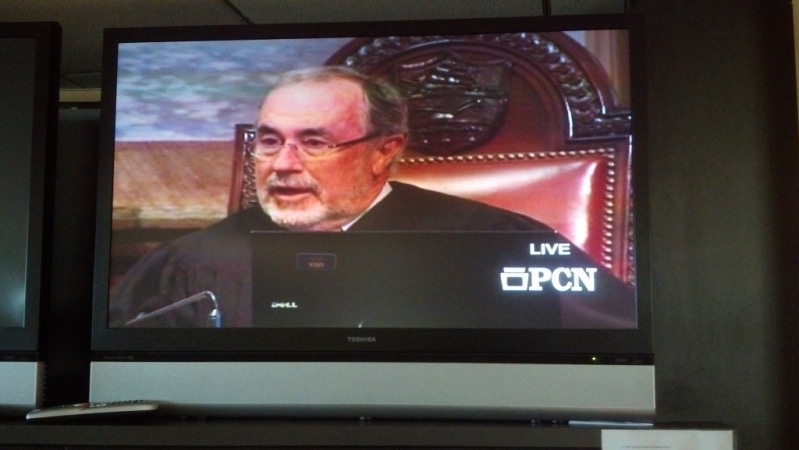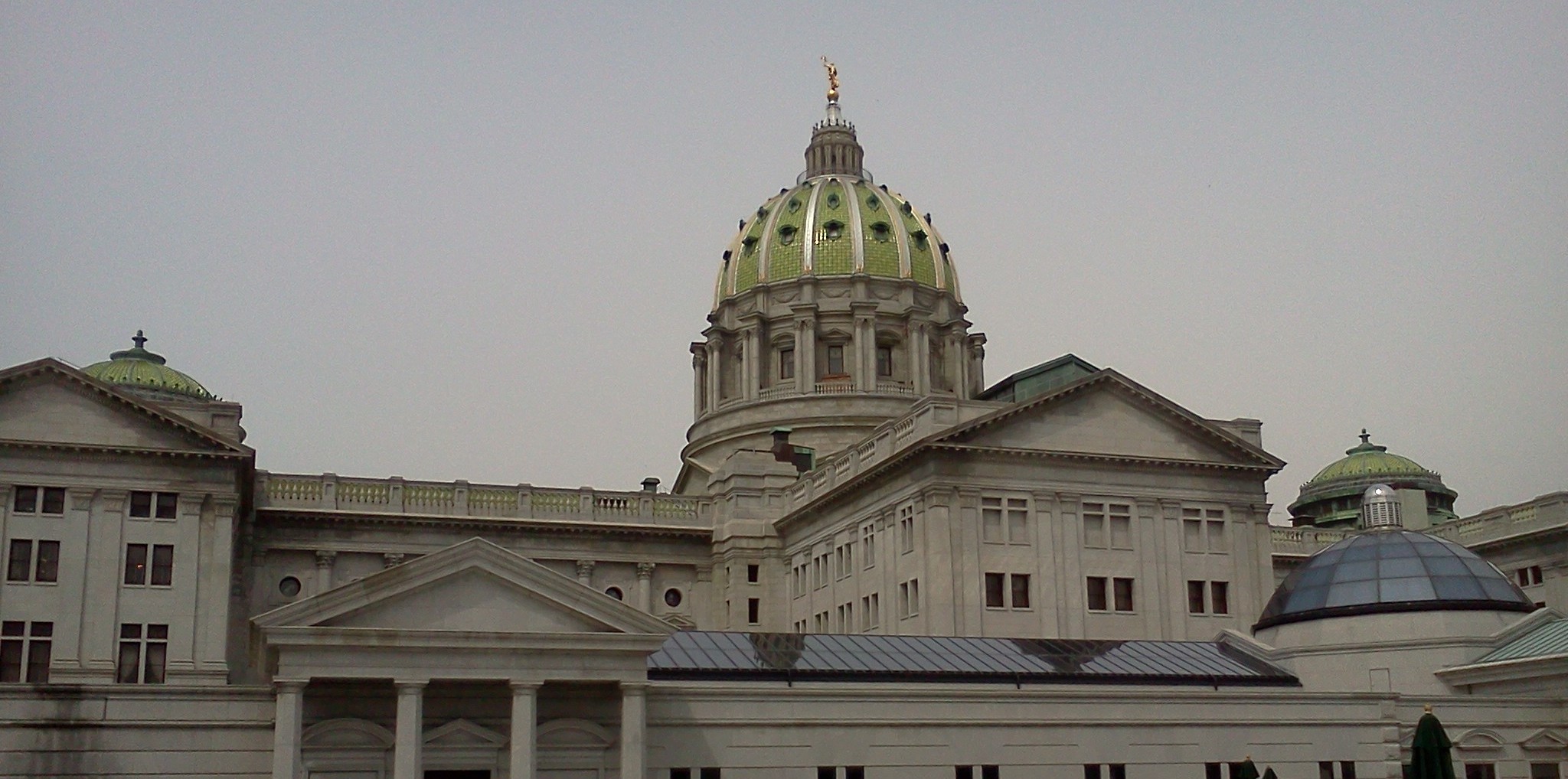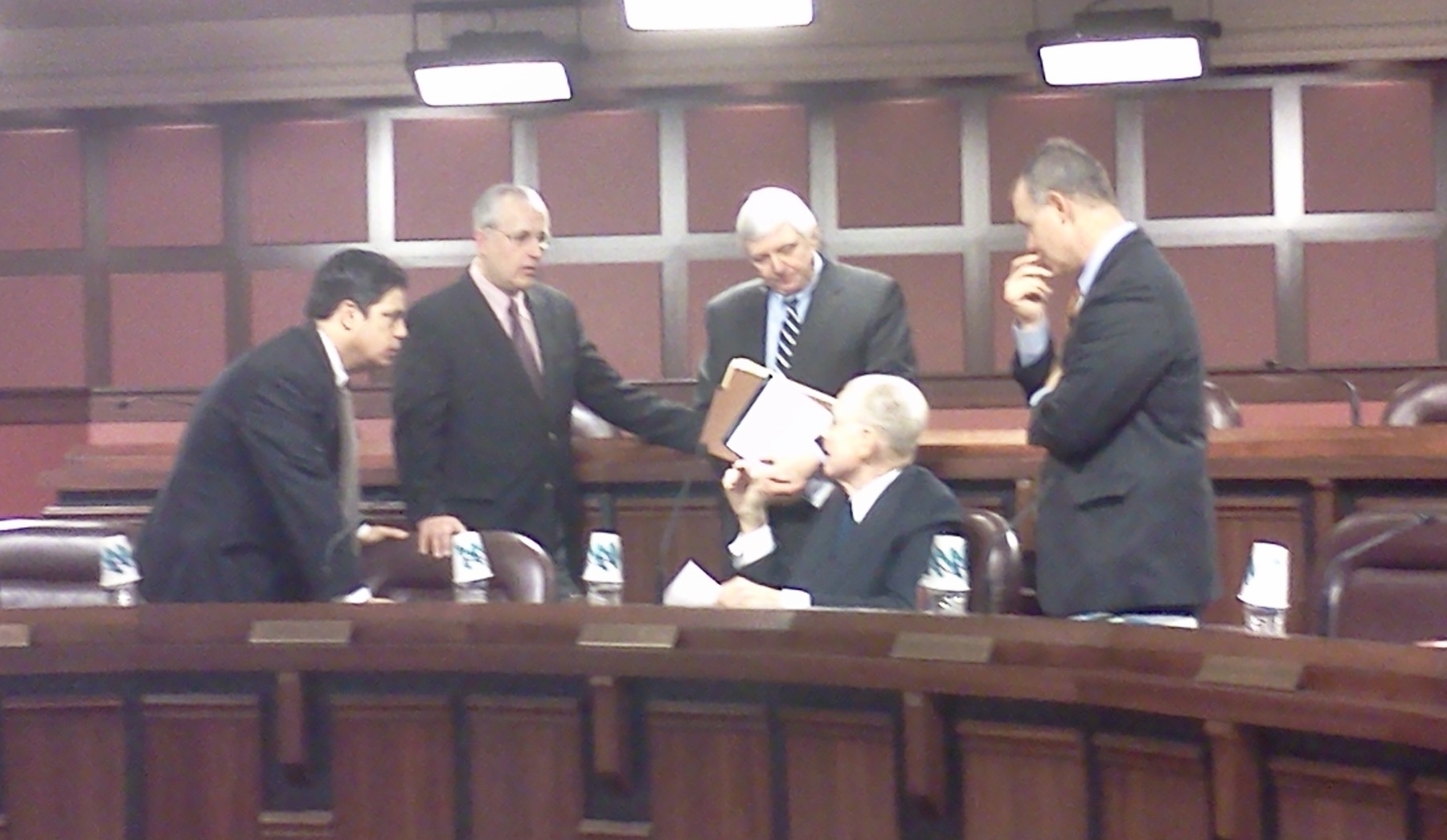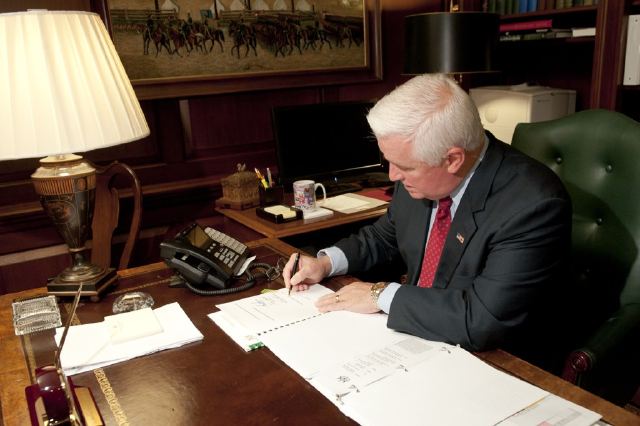As 2012 draws to a close, Radio PA is looking back at the top 10 Pennsylvania stories of the year as voted on by the news staff and other members of the statewide media. In this installment, we reveal stories 10 through 8, beginning with one of many political fights in 2012…one that began with the governor’s budget address on February 7th.
Click the audio players to hear Radio PA’s recap of each story.
#10 – The Battle for Higher Ed Funding 2012Top10-10FINAL
A year after cutting state funding to higher education, Governor Tom Corbett came back for more. In this round of proposed cuts, the governor slated reductions of 20% for the 14 state-owned universities and 30% for Penn State, Temple and PITT. Only Lincoln University, which takes a small amount of state funding by comparison, was left unaffected. The plan drew immediate fire from education advocates and state lawmakers on both sides of the aisle. During state budget hearings, the schools pleaded their cases, saying harsh cuts in state funding would could result in tuition increases and a reduction in curricula. Students themselves rallied in Harrisburg and higher education was a key component of the budget talks in May and June. In the end, state funding for the schools would remain level but Governor Corbett’s message was clear: if we don’t have it, we won’t spend it. The battle for higher education funding is Radio PA’s #10 Pennsylvania story of 2012.
#9 – The Redistricting Mess 2012Top10-9FINAL
The state constitution calls for the redrawing of state legislative districts every 10 years, based on numbers from the U.S. Census. the original intent of the law was to consistently reflect population shifts and other changes, but redistricting has instead become a political tool designed to make life as difficult as possible for the political party unfortunate enough to be in the minority the year following the Census. This year, that’s the Democratic party and the Dems cried foul over the Republican-dominated maps drawn up by a five-member reapportionment panel that leaned to the GOP side of the aisle. Questions were raised about the enormous number of municipal and county splits in the state House and Senate district maps. Critics also accused the panel of dragging its feet in an attempt to invent a false sense of urgency when the maps were finally released late in 2011. One Pennsylvania citizen, Amanda Holt of Allentown, drew up her own maps using what she called strict constitutional guidelines. Holt’s map was among the exhibits when the case went to the state Supreme Court and observers say it showed the justices that a better map could be crafted. As such, the high court through out the controversial maps and told the reapportionment panel to try again. Meanwhile, the 2012 elections would be based on maps drawn up in 2001. A new set of district maps were approved but the courts have yet to give final approval. Gerrymandering and the redistricting controversy is Radio PA’s #9 Pennsylvania story of 2012.
#8 – The Arrest of Graham Spanier 2012Top10-8FINAL
He avoided charges in the first round of indictments handed down by prosecutors, but the law came knocking on Graham Spanier’s door November 1st of this year, just days shy of the one-year anniversary of the arrest of former assistant football coach Jerry Sandusky on charges of molesting young boys. Spanier, the former Penn State President who was fired the same night as Joe Paterno, was charged with failure to report suspected child abuse, endangering the welfare of children, conspiracy, perjury and obstruction…the same charges levied against former Athletic Director Tim Curley and former Vice-President for Administration Gary Schultz. State Attorney General Linda Kelly said that the three men were part of a “conspiracy of silence” that allowed Sandusky to continue preying on young boys. Spanier, Curley and Schultz are expected to go to trial in 2013 and Graham Spanier’s November arrest is Radio PA’s #8 Pennsylvania story of 2012.
Coming soon…stories 7 through 5.











